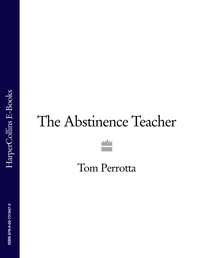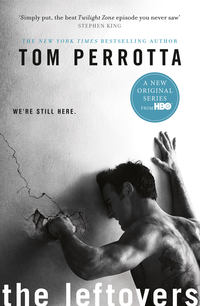
Полная версия
The Wishbones
It hadn't taken Phil Hart a long time to die, but an eternity seemed to have passed between the moment of his collapse and the arrival of medical assistance. At first the whole room seemed paralyzed, as though everyone were simply waiting for Phil to leap up and finish the song. Finally, Mel, the arthritic sax player, bent down with visible difficulty and retrieved the fallen microphone.
“Phil's hurt,” he announced, in a voice too calm for the circumstances. “Would someone be kind enough to call an ambulance?”
The Sundown burst into a hectic flurry of motion, with people scattering in several different directions at once, shouting for a telephone. Dave and Ian rushed across the lounge to check on Phil.
“Is there a doctor in the house?” Mel inquired. “How about a nurse?”
By the time Dave reached the edge of stage #2, Joey had already emerged from behind his drum kit, rolled Phil onto his back, and begun loosening the buttons of his ruffled shirt. Phil submitted patiently to these ministrations, his awestruck face turned to the ceiling. Even then, from a distance of about ten feet, Dave could see that he was gone.
“Grampa,” Joey implored him. “Grampa, please.”
“Is there a doctor in the house?” Mel repeated. “Does anyone know CPR?”
Dave hunched his shoulders and took a step back from the stage, trying to look as inconspicuous as possible. He had taken a CPR class in high school, but all he remembered was that Ralph Vergiliak had pretended to hump the dummy, earning himself a week's detention.
“Grampa.” Joey's voice was stern now, as though he were scolding the dead man for his lack of cooperation. He grabbed hold of Phil's shoulders and gave them a hard shake. “Come on now, Grampa.”
From the corner of his eye, Dave caught a brilliant flash of red. Before he understood what he was looking at, Alan Zelack had rushed across the stage, shoved Joey out of the way, and begun CPR. The whole sequence came back to Dave as he watched—the head tilt, the sweep of the mouth with one finger, the pinching off of the nostrils. The multiple chest compressions for every breath of air.
Zelack performed these actions with ostentatious competence, his blond hair flying, his red tuxedo shooting off tiny urgent flares. Dave's first, ungenerous impulse was to resent him for hogging the spotlight even in a tragedy, but that quickly passed, replaced by a grudging sense of respect. Like everyone else gathered around the stage, Zelack must have known that Phil was already dead. And yet he kept trying fiercely to bring him back, pumping his chest and filling his lungs, minute after interminable minute, until the ambulance finally arrived, and Phil's body became the property of professionals.
The Wishbones played their set anyway. They thought about canceling, but a couple had traveled all the way from Belvidere with their wedding consultant to check them out, and didn't want to have make the trek again. As a courtesy to them, Artie decided that the show must go on.
Dave felt a little weird about it, but as soon as he strummed the first chord of “Jailhouse Rock,” his reservations vanished. The music jolted him like an electric shock. It seemed to pass through his body on its way from the guitar to the amp, cleansing him, reminding him of how good it felt to be alive.
And it wasn't just Dave, either. Buzzy, who usually stood stone-faced and motionless while he played, was grinning with amazement, rocking from side to side as he plucked out the pulse of the song. Ian had abandoned his usual two-bit Elvis impersonation and was singing like he meant it, while Stan pounded the drums as though exorcising the demons from his life. Even Artie caught the wave. The solo jumped out of his horn, every note of it a fresh squawk of pleasure. It seemed to Dave that the song had never existed before, that they'd invented it on the spot.
Somehow they kept the momentum for ten more tunes, finding something real in even the tiredest old standards. When they had run the gamut of their repertoire, from disco to pop, from polka to R&B, Ian surprised them all by breaking into one last song on his piano, something the Wishbones had never done before.
“This is for Phil,” he said. “Rest in peace, brother.”
The chords were simple, and Dave recognized them right away. He hadn't played “Knockin’ on Heaven's Door” since high school, back when he was lead guitarist in a band called Exit 36. Listening to the words now, colored as they were by death, Dave wondered what they could have meant to a bunch of teenagers in a suburban garage in 1979, kids whose idea of heaven was half an ounce of Colombian Gold and a girl with big tits to smoke it with.
But then he stopped wondering and gave himself up to the song. He closed his eyes and sang the chorus with every ounce of strength in his body. It was a blessing. Rest in peace, brother.
Julie answered the door in gray sweatpants and a baggy orange T-shirt. In her hand was a fat paperback with a tortilla chip marking the page.
“You lucked out,” she whispered, jerking her thumb in the direction of upstairs. “They went to bed.”
As he had on countless nights before this one, Dave followed her down the carpeted stairs to the rec room. As always, Julie left the door open, a somewhat discredited token of good faith to her parents. He pulled off his tuxedo jacket and draped it over the armrest of the brown-and-beige-plaid couch.
“Sorry I'm late. Things got messed up at the showcase.”
She shrugged. “It's probably better this way. They still haven't really forgiven you. Or me, for that matter.”
“You can't really blame them.”
Julie didn't respond one way or the other. She plopped down on the couch and stretched her legs out in front of her, resting them on the coffee table next to the bowl of chips that had supplied her bookmark. One leg of her sweatpants was pushed all the way up past her knee, while the other one extended down to her ankle. She put her hands behind her head and smiled up at him.
“So what happened at the showcase?”
Dave opened his mouth to tell her about Phil Hart, but something went haywire in his brain. He looked at her and thought how pretty she was, smiling up at him, rubbing her heel over her bare shin, waiting for his answer. He thought of how much they'd been through together, and how crazy he was to imagine that he would ever want more from life than she'd be able to give him. He spoke without intending to, and didn't really gauge the significance of his words until it was too late, until she was already off the couch and in his arms.
“Let's get married,” is what he'd told her.
WE'RE SOOOO THRILLED
He woke the next morning with a consciousness—it felt something like a hangover—of having made a terrible mistake. He couldn't figure out how it had happened, how he'd allowed years of resolve to crumble in a single moment of weakness. In the half darkness of his bedroom, he fantasized about calling and rescinding the offer.
“I'm not ready,” he'd explain. “I don't have a steady job or any money in the bank. You deserve someone more reliable, a husband you can count on.” He figured he'd leave out the part about not believing himself capable of a lifetime of sexual fidelity.
“So why'd you do it?” she'd ask, more curious than upset. “Why'd you propose if you didn't mean it?”
“I—I really don't know. I was just in a weird mood or something.” He could hear the lameness of his excuse. “I love you, but I'm just not prepared for this.”
The imaginary Julie listened carefully, her brow knitting into wavy lines of concentration. “I understand, Dave. It would be crazy for us to get married right now. But I do want to continue having sex with you.” Her voice dipped into a more sultry register. “In fact, I want to have sex with you right now.”
He threw off the covers and forced himself to get out of bed. This was no time to get sidetracked. He really did have to figure out a way to tell her that he hadn't actually meant to pop the question (though it wasn't even a question, now that he thought about it), but had somehow taken leave of his senses as a result of Phil's sudden death and that pushed-up leg of her sweatpants …
It wasn't going to be easy, he could see that. But maybe he wouldn't have to convince her. Maybe Julie was having second thoughts, too. Maybe she'd opened her eyes that morning and had the same realization as Dave—that they were acting rashly, that this was precisely the wrong time to be making such a momentous decision. He resolved to go downstairs, have a cup of coffee, and call her at the office. It was entirely possible that they could straighten out this mess in a matter of minutes, and maybe even laugh about it afterwards.
As usual, he had the house to himself. His mother left at seven to catch the train to Newark, and his father left at eight for his part-time retirement gig as a deliveryman for a local printer who called himself “Mr. Speedy.” Dave did the same sort of work, driving on a freelance basis for a courier service owned by Artie's brother, Rick. Mostly he worked afternoons, but his schedule was erratic. Some days he drove for three hours, some for twelve. It all depended. Some days he didn't work at all.
He should have been used to it by now, but being alone in the house on a weekday still made him feel like he was back in high school and had just put one over on his parents. All sorts of exciting and illicit behaviors offered themselves up for consideration. He could smoke a joint, phone an escort service, fry up a whole box of breakfast sausages. In the end, though, all he ever did was sit down in front of the muted TV and strum his acoustic guitar.
On the way to the coffeemaker, he stopped to read the note his mother had left on the kitchen table. She never failed to dream up an errand or two to fill his morning, as though she couldn't bear the thought of a grown man alone for a few hours with absolutely nothing to do. But today's message was completely er rand-free.
“CONGRATULATIONS!!” it said. “We're soooo thrilled. Julie's a wonderful girl.” Then, at the bottom of the page, in tiny letters: “P.S.— It's about time.”
His mother answered on the second ring. “Mr. Nordberg's office.” There was a singsong lilt in her voice, a sunny, professional note that still caught him off guard after all these years of calling her at the office.
“It's me,” he said.
“HELL-loo,” she cooed, shifting to a more maternal, but equally cheerful tone. “I was just about to call. Your father and I are so happy, honey.”
“How'd you find out?”
“Dolores called this morning, right before I left. Didn't you hear the phone?”
“I must have slept right through it.”
“Have you picked a date?”
“Not yet.”
“September's a good month.”
“This September?”
“August is too hot. And lots of people are away. I think you should hold off till September.”
“You mean four months from now?”
“It's May now, so let's see … June, July, August … Four months sounds about right.”
“That's a little soon, don't you think?”
His mother laughed. “When you've been dating the girl for fifteen years, honey, you don't need a long engagement.”
“Mom,” he said, making an effort to control his exasperation, “we haven't been going out for fifteen years. Everybody says that, but it's just not true.”
“On and off,” his mother said, correcting her error. “Fifteen years on and off.”
“Okay, whatever. It's really not worth arguing about.”
“Anyway, for what it's worth, I still think September is a good month.”
“I'll keep that in mind.”
A brief silence ensued. When his mother spoke, her voice had dwindled into a worried, confidential whisper. “She's not … in trouble, is she?”
“In trouble?” Dave teased. “You mean with the law?”
“Ha ha,” she replied.
“Not that I know of.”
“Good.” Another phone rang at her end of the line. “I have to grab that, honey. Bye.”
“Okay,” he told the hum that had replaced his mother. “Talk to you later.”
Julie Called before he'd swallowed his second sip of coffee.
“Hey, sleepyhead.”
“Oh, hi.”
“What's wrong?” she asked quickly. He caught the barely perceptible note of fear in her voice.
“Nothing.”
“You don't sound too good.”
“I'm fine.”
“Are you sure?”
He saw the opening, but couldn't bring himself to take it. The kind of talk they needed to have, you couldn't do over the phone, he realized, especially during business hours.
“I didn't get to tell you last night. Phil Hart died at the showcase. He collapsed right onstage.”
“Phil Hart?”
“You know,” Dave told her. “Phil Hart and His Heartstring Orchestra. The guy with the artificial hips?”
“He collapsed onstage?”
“Right in the middle of'Like a Virgin.’ I'm not sure if it was a stroke or coronary or what.”
“God, Dave. That must have been awful. Why didn't you tell me?
“I don't know. I guess I didn't want to spoil the mood.”
“That was sweet of you.” She sounded vaguely perplexed.
Dave didn't answer. He just sat there, staring at the nutritional information on the side panel of a box of Cheerios, marveling at his own cowardice.
“I love you,” she said.
“Yeah.” He massaged an eyelid with two fingers. “Same here.”
“Oh, by the way,” she said. “You're invited for supper tonight. My parents want to celebrate.”
He forced himself not to groan. “What time?”
“Seven?”
“Okay.”
“There's so much planning to do,” she said happily. “I'm overwhelmed just thinking about it.”
“Yeah, me too.”
“By the way,” she added, “what do you think of September?”
Dave had two courier runs that afternoon—a quick in-and-out to Wall Street, followed by a trip to Morristown to drop off some X rays at a doctor's office. He liked driving for a living, especially since it meant he got paid for time spent listening to tunes on his car stereo. There was no better way to experience music, cranking the volume as high as it could go in an enclosed space, singing at the top of his lungs as he zigzagged like a stuntman through slow-moving traffic on the Pulaski Skyway. He could never understand how people managed to survive entire days cooped up in an office, with nothing to listen to but ringing phones and hushed voices. Even worse, a few of the places he visited had piped-in Muzak, the sound track of living death. Just thinking about it gave him the willies.
Another cool thing about his job was that it brought him into the city two or three times a week. Manhattan was always a jolt of crazy energy, a reminder that life wasn't meant to be safe or easy, the way it was in the suburbs. Dave even appreciated the stuff that gave most drivers headaches—the insane cabbies and squeegee men, the pedestrians who swarmed around his car at red lights like ants around a piece of candy, the whistle-tooting bike messengers and Rollerbladers who zipped past his windshield in suicidal blurs. Just making it in and out of this mess in one piece qualified as a triumph, an achievement he could carry around for the rest of the day.
Sometimes he wondered if things would have turned out differently if he'd moved into the city after dropping out of college instead of drifting back to his parents’ house and the routine of familiar places and faces that had consumed his life ever since. Maybe it would have sharpened him somehow, having to live in a dingy, roach-infested shoe-box apartment, eating canned soup and SpaghettiOs, following in the footsteps of Dylan and Lou Reed and Talking Heads and the zillions of wannabes who'd journeyed to the city to test themselves against the myth Sinatra sang about. It wasn't something he brooded about, just a possibility he turned over in his mind every now and then when he found himself trying to answer the thorny question of how it was he'd ended up a Wishbone instead of a star.
In the car, he was able to consider his predicament more clearly, without the edge of panic that had clouded his morning thoughts. The first thing he realized was that it wasn't the idea of marrying Julie that frightened him; it was the idea of being married, of joining this big corny club of middle-aged men that included his father, Julie's father, his uncles, and every scoutmaster, Little League coach, and volunteer fireman he'd ever known. There were some exceptions—Bruce Springsteen and Buzzy came to mind— but in general, marriage seemed to require that a man check his valuables at the door: his dreams, his freedom, all the wildness that had defined the secret part of his life, even if, like Dave, he wasn't all that wild in reality.
It was easier if you were a woman. Women were supposed to want to get married, to go through life with a husband and children. A man's job, as far as Dave could see, was simply to resist for as long as possible before surrendering to the inevitable. You didn't have to play guitar in a wedding band to know that there was something at least slightly pathetic about a bridegroom.
Beyond his personal fears, though, he identified a deeper, more philosophical question: Was marriage something you chose, or was it something that happened whether you wanted it to or not, one of those mysterious, transforming events on the order of birth and death? The no-brain answer, of course, was that you chose. You were an adult in a free country; there were no arranged marriages in America. You didn't have to do anything you didn't want to.
He accepted all that, but on another level, it was hard to say that he and Julie had actually chosen each other in some rational, adult way. Fifteen years ago—half their lifetime—she had walked up to him in the hallway of Warren G. Harding Regional High School and told him that Exit 36 had put on a great show at the spring dance and predicted that they would someday be famous. A week later he took her to see Midnight Express. Two months after that they split a six-pack purchased by her older sister's boyfriend and had sex for the first time. It just happened, in some urgent hormonal haze that had little to do with concepts like choice or intention, and they hadn't been free of each other since. And now, apparently, unless he thought of something fast, they were going to get themselves married.
Dave's father Sat at the table in his Mr. Speedy baseball cap, reading the Daily News with the almost religious thoroughness he devoted to every edition. It seemed to Dave that he pored over every word of it—the advertisements, the classifieds, the bridge column, all twelve horoscopes. Reading the newspaper filled most of Al Raymond's spare time; it was his version of a hobby.
“Hey,” he said, looking up with a smile that was surprised and satisfied at the same time. “Congratulations. Your mother told me the good news.”
“Word travels fast.”
“You had her worried there for a while, Dave. She didn't think Julie would stick around long enough for you to make up your mind.”
“It wasn't a matter of making up my mind. I just didn't feel ready.”
“No one feels ready. It's the same with having kids. You just jump in and start treading water. If everybody waited until they were ready, we wouldn't need express lines at the supermarket.”
Since his retirement, Al had emerged as something of an armchair philosopher, full of cryptic insights into the workings of the world. It was a development that surprised the whole family. Dave still came home half expecting to find the old Al lurking behind his paper, the grumpy exhausted chief of maintenance at the county courthouse, the human jukebox of grievances.
“So what do you think about marriage?” Dave asked, sorting through the junk mail on top of the microwave.
“About what?”
“Marriage.”
“Julie's great,” his father replied. “I hope you'll be happy together.”
“I didn't ask about Julie. I asked what you thought about marriage.”
“What? The institution in general?”
“Yeah. I mean, you've been married for thirty-six years. I figure you might have formed an opinion by now.”
His father studied him for a few seconds, apparently trying to decide if he was serious.
“Come on,” he said, chuckling uncomfortably. “Quit pulling my leg.”
Until that evening, Dave had never given serious consideration to the matter of inlaws. He'd known Jack and Dolores Müller for a long time—almost as long as he'd known their daughter—and paid them the wary respect due the parents of the girl you're sleeping with, but it hadn't occurred to him, except in the vaguest, most fleeting way, to think of them as relatives, people whose lives might one day be intimately and inextricably caught up with his own. Inlaws were people you were required to visit on holidays, people whose genes your children would inherit, people who might—it happened all the time, he realized with dismay—end up, for one reason or another, living in your house.
Mrs. Muller answered the door in a ruffled apron, the bib of which was emblazoned with the image of an eggplant. Despite her manufactured smile, the air between them was instantly thick with embarrassment; Dave had to resist an impulse to place his hands over his crotch. Stepping through the awkwardness into the house, he greeted his future mother-in-law with a clever approximation of a hug.
“Congratulations,” she said, rallying a little. “We're so pleased.”
“Thanks. It's kind of amazing, isn't it?”
“I'll say,” Mrs. Müller agreed, her voice suddenly full of conviction.
Julie was in the kitchen, tenderly probing a casserole with a very large fork. She was wearing gingham oven mitts and a gingham apron over a black floral print dress that was one of Dave's favorites (she occasionally “forgot” to wear underwear with it, a lapse that thrilled him beyond words). Still clutching the fork, she rushed across the room to embrace him. Her skin was clammy; she smelled of meat and Obsession.
“You're gonna love this,” she said. “We made all your favorites.
Dave had never seen her in an apron before, and the effect was disconcerting, especially with her mother standing so close by, also in an apron. The two of them shared a facial resemblance so strong that you could almost imagine them not as mother and daughter, but as the same person at two different stages of life.
Dave had heard the joke about taking a long hard look at your prospective mother-in-law before deciding to get married, but he'd never given it a second thought. It was one of those pearls of marital wisdom a certain type of middle-aged guy like to dispense, something Henny Youngman probably said on Johnny Carson back in 1963.
But now he looked at Julie and Dolores and wondered. Was it possible that Mrs. Muller had once possessed a body as curvy and stirring as Julie's? If so, when had it changed? Was it a gradual transformation, or did it happen overnight? He made a mental note to ask Julie to show him the family photo albums. It was never too early to start bracing for the future.
“So,” he said, gazing around the kitchen with feigned interest, “anything I can do?”
“I don't think so,” said Julie.
“Why don't you go downstairs,” Mrs. Müller suggested, in a tone that made it clear he had no choice in the matter. “Jack wants to have a drink with you.”
Dave shot a quick, pleading glance at Julie, but she refused to save him. Shrugging an insincere apology, she shooed him out of the kitchen with a puffy, checkered hand.
Downstairs, Mr. Muller was waiting on the couch in a tweed jacket and striped tie. He had a glass of scotch in one hand and a thoughtful expression on his face. Except for the metronomic tapping of his right loafer on the carpeted floor, he seemed utterly calm, as though he would've been pleased to sit for hours dressed up like that in a dim and quiet basement.
“Make yourself a drink,” he said, gesturing toward the bar in the corner, on top of which rested an array of bottles, a bowl of lime sections, and an ice bucket that turned out to be empty when Dave lifted the lid.






